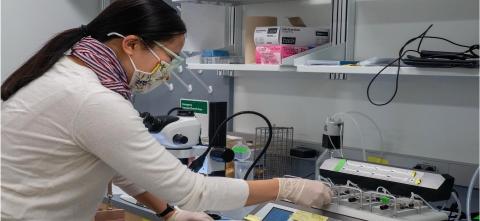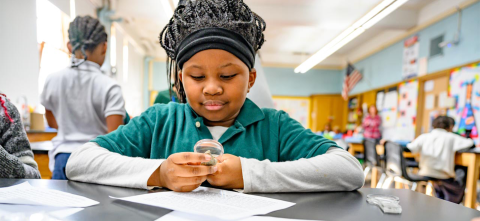
Discovery May Transform What Time of Day Doctors Induce Labor
In a discovery that could shift labor and delivery practices around the world, researchers at Michigan State University have found that the effectiveness of oxytocin — a common medication used to induce or speed up labor — depends on the time of day it’s administered, especially for patients with gestational diabetes.

Can AI Tell When Someone’s Lying? Recent Study Says Not Yet
Can an AI persona detect when a human is lying – and should we trust it if it can? Artificial intelligence, or AI, has had many recent advances and continues to evolve in scope and capability. A new Michigan State University–led study is diving deeper into how well AI can understand humans by using it to detect human deception.

7 Long-Term MSU Projects Shape How We See the World
At Michigan State University, some discoveries take decades — even centuries — to unfold. The university’s roster of long-term projects and experiments range from buried seeds that have sprouted nearly a century and a half later to a decades-old twin registry that is helping researchers make new discoveries about health and psychology. Spartan researchers are committed to examining a wide range of topics that help us better understand the world.

Food Insecurity Linked to Nerve Damage
The nerves in our hands and feet allow us to sense touch, pressure, temperature, vibration and pain. If anything interferes with nerve function, we can have trouble with daily tasks like holding objects and even walking. Some people are at higher risk for nerve damage in their extremities. Why? New research from Michigan State University reveals that race/ethnicity and food insecurity are two key factors associated with peripheral neuropathy.

Exploring Climate-Smart Forestry Across Continents
David MacFarlane, a professor of measurements and modeling in the Department of Forestry at Michigan State University, recently completed a six-month sabbatical that took him from the mangrove coasts of Mexico to the alpine forests of Italy. His journey was part of a Fulbright Global Scholar Award aimed at advancing an emerging global approach to forest management known as climate-smart forestry.

$10M Grant Will Advance Science Education in the Rural South
CREATE’s research and partnerships reveal that science instruction—especially in lower grades and low-income schools—often receives less attention, widening the achievement gap between these and more affluent communities. To address this, Michigan State University scholars are expanding their innovative Collaborate Science (ColSci) curriculum to strengthen science and literacy learning and spark student engagement.

Championing Epistemic Justice in Music Education
Juliet Hess has long been a voice for equity and inclusion in the classroom. Now, the professor of music education at the Michigan State University College of Music is set to publish her latest book which presents practical ways to honor and embolden knowers across a range of minoritized student populations.

Researchers Highlight Technological Improvements in Identifying Gene Traits
Two papers by Michigan State University researchers in spatial transcriptomics were recently published in Nature Communications. The technology presented has the potential to make an impact in cancer treatments, as genetic information about the environment surrounding tumors can make an impact on a patient’s immune response.
Announcements
